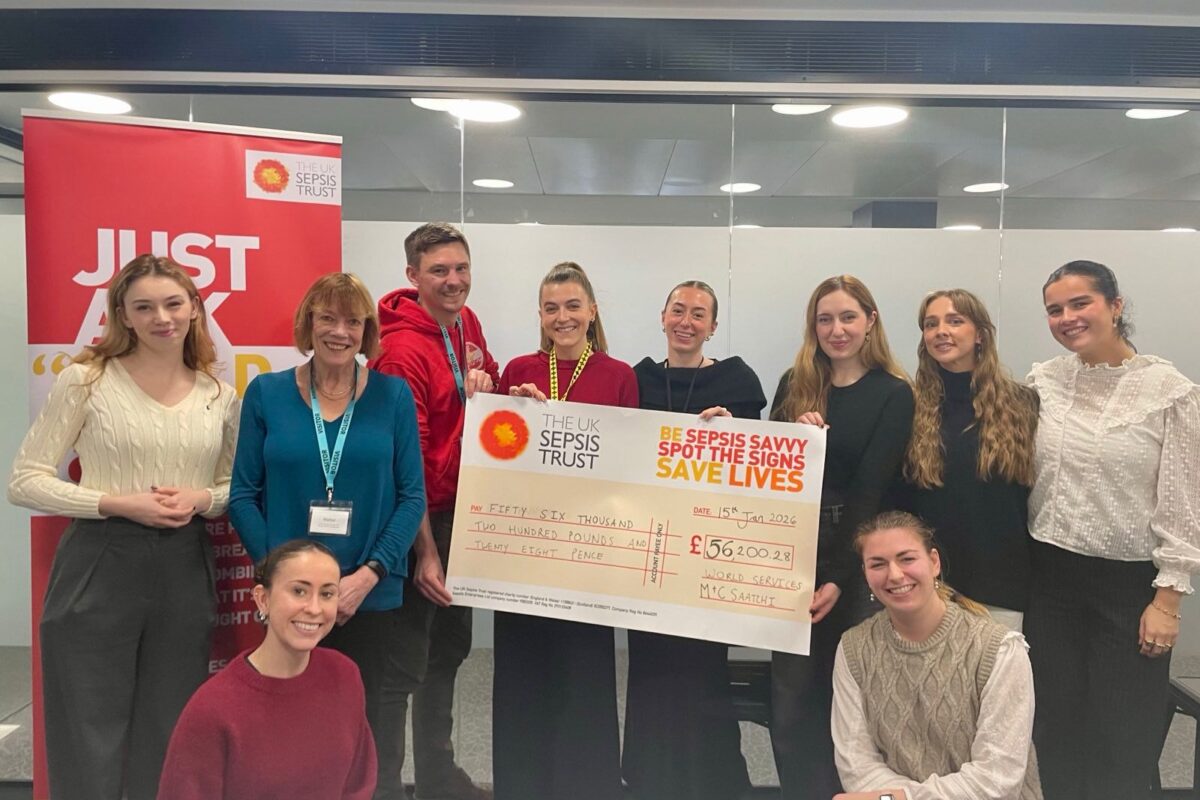Join us as we follow a day in the life of our Support Nurse, Emma, who qualified as a nurse in 2004 and has worked in critical care for nearly 17 years before joining The UK Sepsis Trust in her current role. Discover the topics she deals with on a day-to-day basis and the wonderful support she offers those who reach out.
“My role as a support nurse gives me a real insight into the common problems many people encounter in their recovery, and I am so passionate to help support and enhance their recovery and also in supporting families following the death of a loved one.
Oliver, Katie and I start each day with a call together on Teams to check in, debrief from the previous day and confidentially discuss our upcoming calls or support groups. Whilst our work is incredibly rewarding, it really helps to be part of a close team like this who can support one another when things are challenging.
The first call I took was from Tina*, who was recently discharged from hospital after a 3 week stay. She explains about how she has been struggling with fatigue, muscle pain and flashbacks from her time in hospital. She is experiencing some new functional limitations and said that while her family have been supportive, she feels very lonely in her experience, and is also very stressed about going back to work.
We talked about her experience, and I importantly validated how she was feeling. I referred her to our Recovering and Wellbeing Diary, which many people find really useful to understand their recovery, help plan and prioritise activities and identify positive trends and behaviours. I also signpost her to our Returning to Work booklet, which offers lots of helpful advice for people post-sepsis. We discuss getting in touch with her GP to talk about how she’s feeling and raise her concerns (this may be a little early for referral). Tina* and I schedule another call together for next Monday, and as we’re ending the call, she excitedly told me she’d just clicked to join our Facebook support group, to connect with other people affected by sepsis.
I make myself a cup of tea and sit down to reply to some of my emails before my calls after lunch.
Kai*, who had just finished university when his mum tragically passed away from sepsis last year has been in touch. His mum was very fit and healthy, and her death was a devastating shock, especially as they were very close. Over the last few months, he has been working incredibly hard to acknowledge his grief, and I can see such a positive difference since our first contact. Today, he’s telling me about his feelings of guilt as he wasn’t aware of sepsis before his mum died. He has some questions for me about what may have happened to her in ICU, which have been upsetting him and he has been ruminating over. I give him the space to talk about how he’s feeling and send him some information that he might find helpful. I also invite him to attend one of our online bereavement support groups.
After a quick walk, I have some lunch before logging on for today’s online recover support group. Katie and Oliver and I take it in turns to facilitate the groups with support from a team of fantastic volunteers. I find the support groups really rewarding. They’re so relaxed and friendly, and it’s lovely to see our service users connect and get to know one another. Our groups offer a safe space for people to share their experiences if they wish, and discuss any concerns or issues they’re encountering, as well as any positive breakthroughs in their recovery. Today we welcome three newcomers, who all sadly left hospital with little information on Post-Sepsis Syndrome and what to expect in their recovery. The regulars at the group offer some great advice and support, and we talk about next steps including questions to ask their GPs, resources we provide that may be helpful and ongoing support options.
After the online support group I moderate our new Facebook Support Group, which our community have been responding to really well. People find it helpful to connect to others online and speak directly to people with a shared experience.
I finish the day with a call from Robyn*, who’s partner has just come out of hospital after developing sepsis from a chest infection. She has called for some information about sepsis, as she was unaware of the condition until recently.
After we chat through her questions, she opens up about what happened, and how traumatic it was for her. She becomes very emotional as she describes finding her partner collapsed in their living room. She tells me that she has been struggling with insomnia and anxiety and is too afraid to sleep or even leave the flat in case they become ill again. She feels guilty for being so upset by what happened, as she wasn’t the one who was ill. I reassure her that it’s completely natural to feel distressed by a loved one being unwell, and that we support many other people in the same position as her. After a long chat, I recommend that we schedule another call for next week to check in, and signpost to some resources she might find helpful.
I reply to some emails and check through the Facebook group again before preparing for tomorrow.
I am so passionate about helping people with their recovery, as well as supporting families following the death of a loved one. My role as a support nurse gives me a real insight into the common problems many people encounter following sepsis, and I feel very fortunate to be able to work with our inspiring community”.
* names of service users have been changed to respect their privacy.



